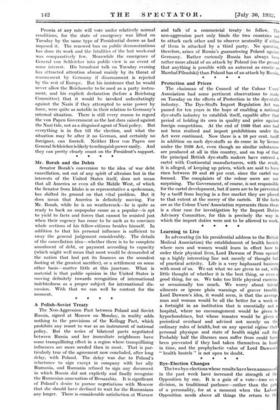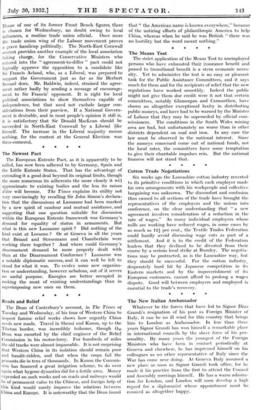Bye-Election Changes The two bye-elections whose results have been announced
in the past week have increased the strength of the Opposition by one. It is a gain of a vote—two on a division, in traditional parlance—rather than the gain of a personality, for at a moment when the Labour Opposition needs above all things the return to the House of one of its former Front Bench figures, there is chosen for Wednesbury, no doubt owing to local influences, a routine trade union official.. Once more the trade union wing of the Labour movement proves a grave handicap politically. The North-East Cornwall contest provides another example of the local association taking charge, for the Conservative Ministers who entered into the " agreement-to-differ " pact could not logically approve the opposition to a candidate like Sir Francis Acland, who, as a Liberal, was prepared to support the Government just as far as Sir Herbert Samuel does. Mr. Baldwin, indeed, strained the agree- ment rather badly by sending a message of encourage- ment to Sir Francis' opponent. It is right for local political associations to show themselves capable of independence, but that need not exclude larger con- siderations from their purview. If a National Govern- ment is desirable, and in most people's opinion it still is, it is satisfactory that Sir Donald MacLean should be succeeded in North-East Cornwall by a Liberal like himself. The increase in the Liberal majority means nothing, for the contest at the General Election was three-cornered.































 Previous page
Previous page